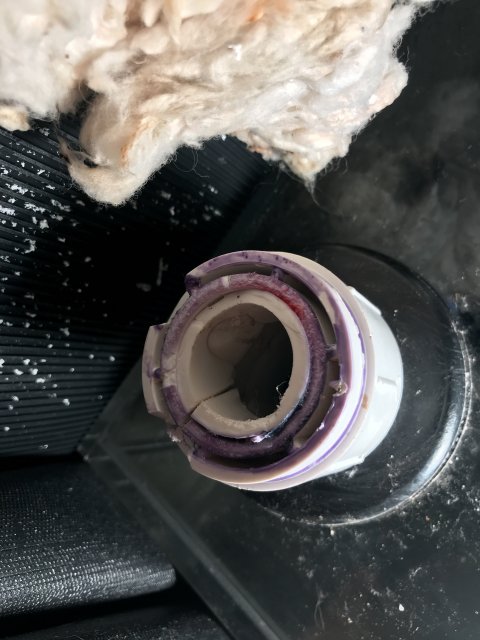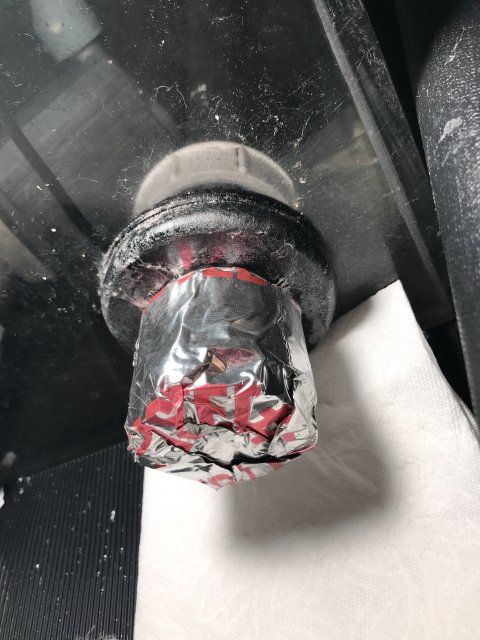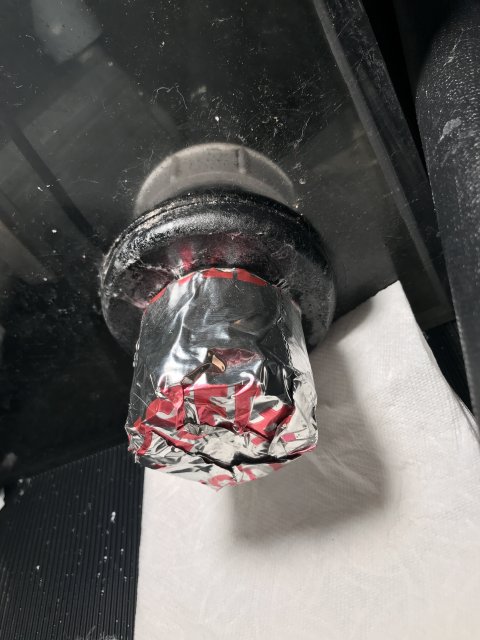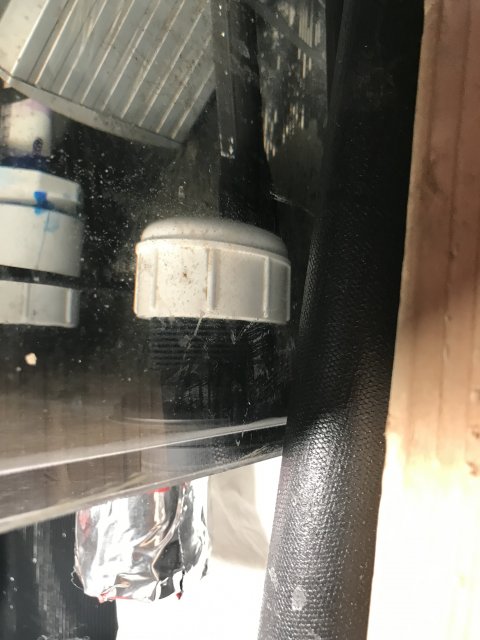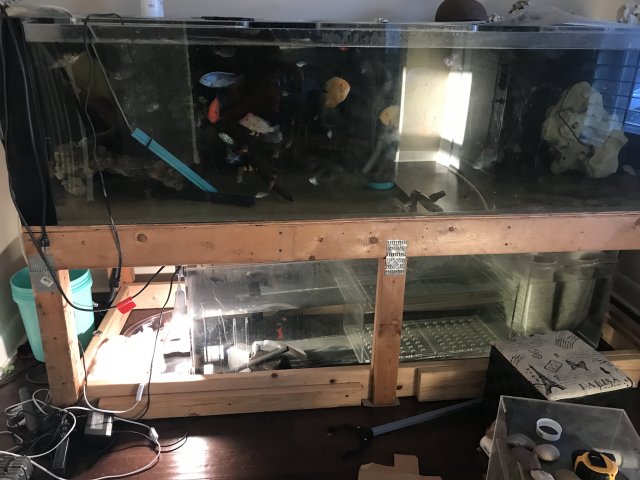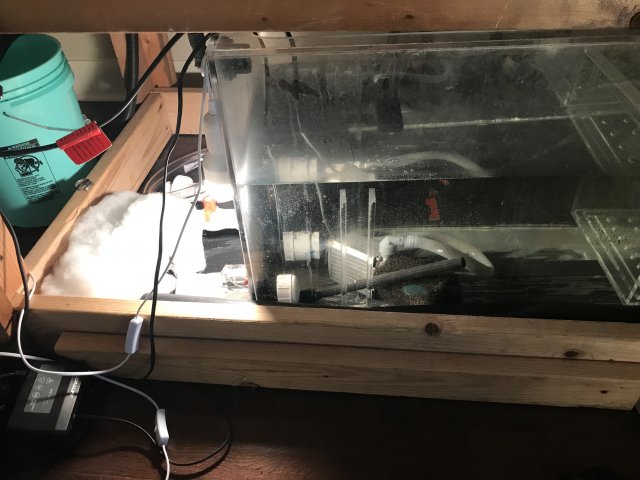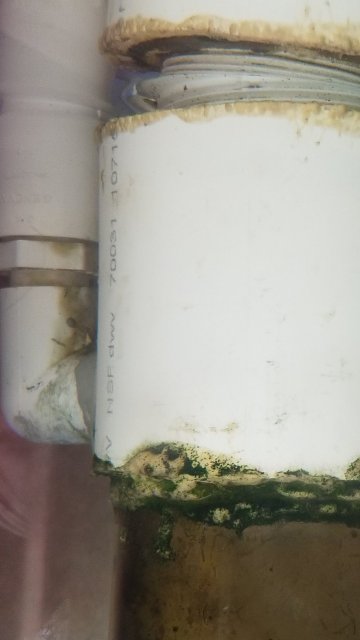Hey all,
So here's the situation. I bought a 130 gallon sump, i hired a contractor to take apart my stand and put in under my 360 gallon. But this crack, didnt seal one of the PVC outlets properly, so the sump has been leaking (very lightly), the contractor wouldnt fix it (i paid him 350$ just to do this simple job)... so another guy came in, who worked with furnaces, sealed the PVC with a can of can Spray polyurethane foam. it looks like it has hardened and the tank isnt leaking anymore. But i'm sure some of the chemicals/foam went in the sump (i saw air bubbles push out of the pvc inside the tank)... soo, how do i know if this thing will kill my fish? will it degrade in the future and kill my fish? anyway I can do a chemical test? did i just ruin my 130gallon sump? feedback much appreciated. I dont want to connect this thing, unless i fix it up.
thanks, will get pictures through.
So here's the situation. I bought a 130 gallon sump, i hired a contractor to take apart my stand and put in under my 360 gallon. But this crack, didnt seal one of the PVC outlets properly, so the sump has been leaking (very lightly), the contractor wouldnt fix it (i paid him 350$ just to do this simple job)... so another guy came in, who worked with furnaces, sealed the PVC with a can of can Spray polyurethane foam. it looks like it has hardened and the tank isnt leaking anymore. But i'm sure some of the chemicals/foam went in the sump (i saw air bubbles push out of the pvc inside the tank)... soo, how do i know if this thing will kill my fish? will it degrade in the future and kill my fish? anyway I can do a chemical test? did i just ruin my 130gallon sump? feedback much appreciated. I dont want to connect this thing, unless i fix it up.
thanks, will get pictures through.



